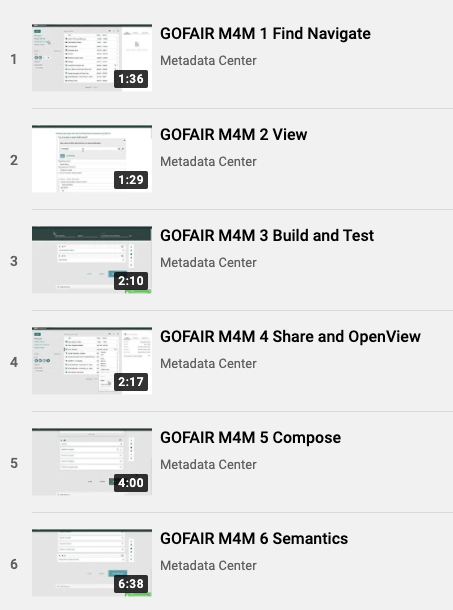The GO FAIR Foundation has begun workshops #5 and #6 in a series of GO FAIR M4M Workshops, which aim to “Assess the state of metadata practices in the various scientific communities, look for improvements of the current fragmentation and promote good FAIR compliant practices.”
For these particular workshops, applications from Stanford’s Center for BioMedical informatics Research (BMIR) will be center stage. BioPortal and CEDAR Technical Program Manager John Graybeal has been selected to lead the 5-day workshops for the Danish e-Infrastructure Cooperation (DeiC), established to support Denmark as an e-Science nation through delivery of e-infrastructures (computing, storage and network) to research and research-based teaching.
The GO FAIR M4M team needed highly performant systems to meet the 5 goals of the M4M workshops:
- Assess the state of metadata practices in the various scientific communities, look for improvements of the current fragmentation and promote good FAIR compliant practices.
- Using the FAIR principles as a guide, define essential metadata elements and standards to support F, A, I, and R by machines, drawing on the deep domain knowledge of existing communities.
- Formulate these decisions as machine-actionable templates in a unified way;
- Register these templates such that they are Openly accessible and available for re-use by tools that can render these templates in familiar, easy to use web forms, APIs, or other capture tools.
- Bundle appropriate M4M metadata categories and register them as FAIR compliant metadata components, ensuring higher degrees of F, A, I, and R by machines.
CEDAR and BioPortal uniquely provide a working solution that combines principled and open metadata definitions in machine-actionable templates, and full support for semantic principles and standards, including any ontology term registered in the community-based BioPortal ontology repository. With 15 years of semantic repository services, and 4 years of end-to-end metadata services, the BioPortal and CEDAR services provide an ideal platform for demonstrating FAIR capabilities that support the straightforward production of standardized metadata. And because BioPortal lets users register any ontology—visible only to CEDAR if desired—users need not worry that their terms will not be available for annotation with CEDAR.
The first CEDAR demonstrations for this training are captured in short training videos in the M4M DeiC YouTube playlist, including demonstrations of CEDAR sharing, OpenView, composition, and semantic features leveraging the BioPortal ontology repository. Check them out!


Recent Comments